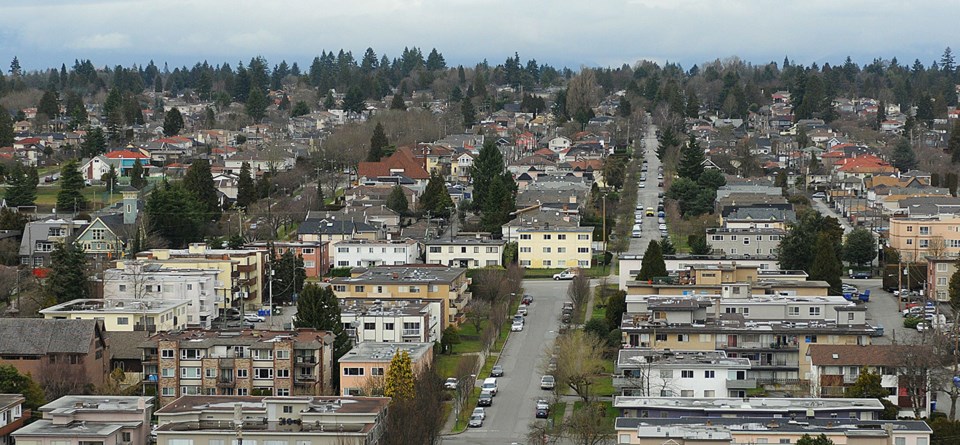Properties on the city’s West and East sides increased almost equally in value, according to the B.C. Assessment Authority.
An average single-family home on a 10-metre (33-foot) wide lot on the city’s West Side went from $1,610,000 last year to $1,812,000 — an increase of 12 per cent.
The value of a same-size home on the city’s East Side increased by 11 per cent, going from $892,000 in 2014 to $993,000 this year.
The increases are attributable to subdivision, rezoning and new construction, an assessment report noted.
The figures come from the B.C. Assessment Authority, which released its 2015 assessment roll on Jan. 2.
The value of apartments on the West Side and East Side also increased.
A two-bedroom apartment on the city’s West Side went from $573,000 in 2014 to $616,000 this year — an increase of seven per cent.
On the East Side, a two-bedroom apartment increased in value, from $364,000 in 2014 to $381,000 this year — a four per cent increase.
“Most homes in the Vancouver Sea to Sky Region are worth more in value compared to last year’s assessment roll,” said Dharmesh Sisodraker, deputy assessor for the authority. “Most home owners in Vancouver Sea to Sky Region will see changes [in their assessments] up to 15 per cent.”
Assessments are the estimate of a property’s market value as of July 1, 2014 and physical condition as of Oct. 31, 2014.
Vancouver’s Sea To Sky region total assessment roll grew by 9 per cent in 2015, going from $374 billion last year to $407 billion this year.
Owners of commercial and industrial properties in Vancouver will see 13 per cent increases in value. Owners of recreational and non-profit properties will see a 20 per cent increase.
Real estate sales determine property’s values, which are reported annually by B.C. Assessment.
Local governments use property assessments to calculate property tax rates based on the assessment roll for their jurisdictions. Vancouver residents paid an average of $4,900 in property tax in 2014.
According to the B.C. Assessment Authority, the market value on an assessment notice often differs from value shown on a mortgage or a real estate appraisal. This is because B.C. Assessment’s appraisal reflects the value as of July 1 of the previous year, while private appraisals can be done at any time.
Homeowners have until Jan. 31 to appeal any valuations.



